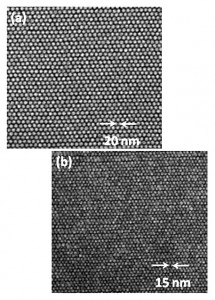
The increasing need for larger data storage space have for a long time pushed the development of ever larger and faster data storage mediums. At the moment existing hard drives max out at 3TB, but TDK’s new HAMR head innovation promises to double this limit to 6TB utilizing heat-assisted magnetic recording. HAMR was developed by Fujitsu in 2006, and relies on recording platters with a high coercivity, making it possible to pack information in more tightly than current platters. To do this they need to be heated before they’re able to write data, which TDK does using a small laser in the drive head. TDK has said that it plans to begin mass-producing drives with these increased capacities by late next year
Now how ever, TDK’s HAMR technology might already be redundant through a recent discovery by Dr Joel Yang at the Institute of Materials Research and Engineering (IMRE), collaborating with researchers at the National University of Singapore (NUS) and the Data Storage Institute (DSI). They have developed a process that can increase the data recording density of hard disks to 3.3 Terabit/in2, six times the recording density of current models. The key ingredient in the much enhanced patterning method and storage capacity, is sodium chloride, the chemical grade of regular table salt.
Continue reading “Increased hard disk space with table salt”
